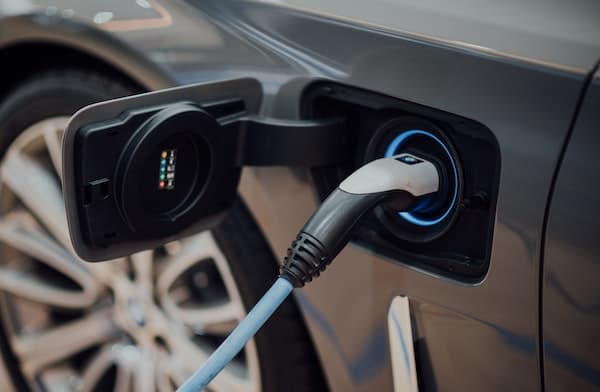The Cost of Charging an Electric Car in Ireland

Electric Vehicles on our Irish roads are multiplying every year and becoming increasingly popular in Ireland. According to SEAI, in July 2021, there were 35,000 electric vehicles, including hybrids in Ireland. With great incentives such as low motor tax and grants, we are expected to see a continued uptake in the purchase of electric vehicles. The government has a current target that there will be 936,000 EVs on Irish roads by 2030. This will include plug-in hybrids (PHEVs) and electric only vehicles (EVs) but not diesel or petrol hybrids. The two main factors causing customers not to switch to electric vehicles are the greater cost of the vehicles and the battery performance. If electric vehicles are the future, you may be wondering how much it will cost you to charge an electric vehicle? Read on to find out more!
The Growing Popularity of Electric Cars
Currently, electric cars account for a small percentage of new vehicles sales, but that figure is set to rise substantially in the coming years. Not only are Electric cars much quieter than diesel and petrol cars but are also far smoother on the road. When buying an electric car, it is recommended to work out your typical days driving so that you can choose a suitable vehicle and battery for the range you need.
The most popular vehicle in Ireland in 2019 and 2020 was the Nissan Leaf which is very promising start for the future of electric cars. A huge part of the increased appeal of the new Nissan Leaf are the low running costs compared to a petrol or diesel car.
The most popular electric vehicle in Ireland in the first half of 2021 was the VW ID, followed by the Nissan Leaf, the Kia Niro, and the Tesla Model 3.
Charging Costs for Electric Vehicles
Ireland is the 4th most expensive European country for charging an electric vehicle. The lower cost of running an electric vehicle is one of the key attractions for many consumers. They may also be cheaper to insure in some circumstances.
On average in Ireland, we pay 24 cents per kWh or €15 to charge an average electric vehicle from flat to full. An average Irish Electric vehicle owner who has travelled 100km will pay €4.97 in electricity costs.
Electric Ireland recently launched their new home electric+ plan for households with installed smart meters. Through this new home electric+ plan, customers will learn how much energy they use and will also see a reduction in their bills by availing of cheaper electricity at different times of the day. If a customer chooses to use the home electric + night boost with Electric Ireland, then their electric car can be charged at home for as little as 5 cents per kWh. Also, the home electric + weekender offers free electricity on Saturday and Sunday from 8 am to 11 pm.
Top 10 EV Models with Lowest Charging Costs per 100km
| Rank | Car Model | Battery Capacity kWh | Slow Charge | Fast Charge | At Home Charge |
|---|---|---|---|---|---|
| 1 | Hyundai IONIQ Electric | 40 | €4.34 | €4.94 | €1.61 |
| 2 | Tesla Model 3 Standard Range Plus | 50 | €4.38 | €4.99 | €1.62 |
| 3 | Tesla Model 3 Long Range Dual Motor | 75 | €4.46 | €5.08 | €1.65 |
| 4 | Fiat 500e Convertible | 42 | €4.51 | €5.14 | €1.67 |
| 5 | Fiat 500e Hatchback | 42 | €4.51 | €5.14 | €1.67 |
| 6 | Hyundai Kona Electric 39kWh | 42 | €4.51 | €5.14 | €1.67 |
| 7 | Hyundai Kona Electric 64kWh | 68 | €4.59 | €5.22 | €1.70 |
| 8 | Tesla Model 3 Long Range Performance | 75 | €4.63 | €5.26 | €1.71 |
| 9 | Lucid Air | 113 | €4.65 | €5.29 | €1.72 |
| 10 | Mercedes EQA* | 60 | €4.65 | €5.29 | €1.72 |
Electric Vehicle Battery Life
One of the biggest worries for first-time electric vehicle buyers is how long the car battery will last. A conventionally powered car is much more complex than an electric vehicle. Compared to a petrol or diesel engine, there are fewer moving parts in an electric motor as an EV uses only a single-speed transmission.
What are Electric Car Batteries made of?
There are many types of car batteries for an electric vehicle, however, most electric vehicles are powered by lithium-ion batteries. This battery is very similar to what is used in smartphones and laptops but with a much greater capacity. Lithium-ion batteries are rechargeable, portable, and lightweight, making them the ideal option for a travelling car. Over time the power capacity will decline resulting in approx. 80% of the original battery capacity after 8 years of daily use.
How Long do EV Car Batteries Last?
An electric vehicle battery undergoes cycles of discharge that occur when driving the vehicle and charge when the car is plugged in. As this process is repeated, it can affect the amount of charge the battery can hold. This will then decrease the charge time and range required between each journey. Most manufacturers have a 5-8-year warranty on their battery.
However, EV batteries last approximately 10-20 years before they need to be replaced.
